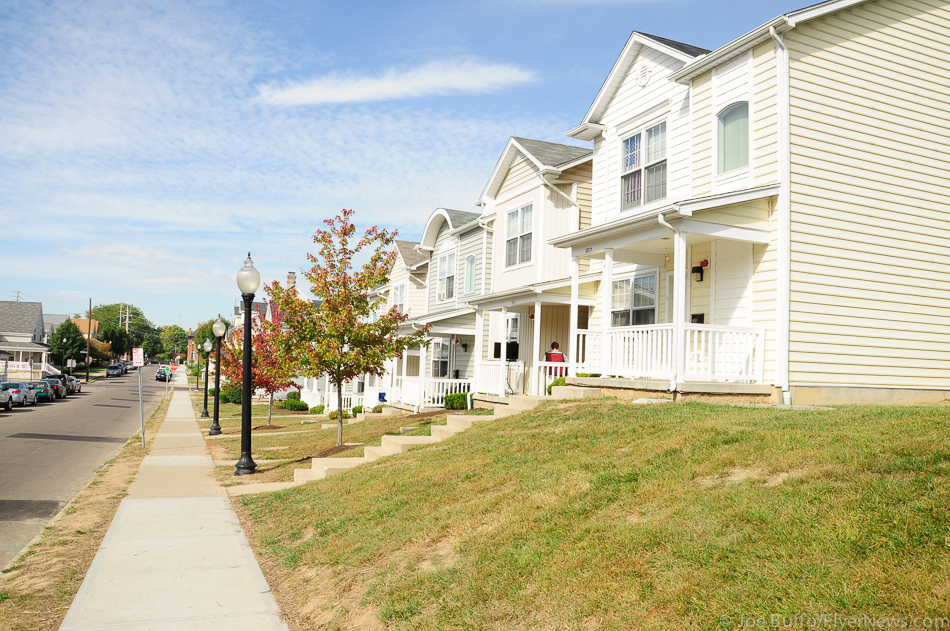Housing and residence life eliminates lottery
By: Roger Hoke – Staff Writer
The science center’s Chudd Auditorium set the scene for the unveiling of the 2014-2015 housing system at UD.
Substantial changes are being made before any housing assignments are handed out this year. The entire lottery system is being disposed of, and a new plan has been formulated.
“The lottery was a difficult and cumbersome process, and we tried to better the housing system to its maximum potential,” Steve Herndon, the executive director of housing and residence life, said.
According to the presentation given by the department of housing and residence life, the new program is called AVIATE, which stands for “A Vision for Integrated, Applied and Transformative Education.”
“What students showed the most concern with the old housing lottery was that they could not pick who to live with, and they had no agency in the process,” Herndon said.
According to the presentation given by the staff of housing and residence life, a task force was convened to redesign the process in May 2012 and was completed by May 2013.
The most significant change is the addition of PATH points, or “Points Accumulated Toward Housing.” The old process, which took into account credit hours, semesters in school and conduct will no longer be relied upon.
“The school already has a conduct process in place,” Herndon said. “It makes more sense for us to have students gain something with PATH points, rather than take something away by misconduct consequences.”
So, how does a student go about attaining PATH points?
PATH points are gained by attending a new element of AVIATE called engagement opportunities. Attending events such as community-building meetings and filling out a short reflection afterward will gain a student points for housing.
The amount of points a housing group gains furthers their chances to get the housing they want to receive.
“It’s no longer just about the luck and chance,” Herndon said. “That led to lots of frustration among students.”
Rising upperclassmen can gain 15 basic PATH points, and rising sophomores can gain 18. These basic points are gained through community-building meetings, check-in chats and roommate living agreements.
Other chances to gain these PATH points will arise throughout the school year. By joining the AVIATE group on OrgSync, students can figure out when the next engagement opportunities are, fill out forms and check how many points they have already earned.
“The process officially begins Oct. 1, but any engagement opportunities already attended will count,” Jim Froehlich, the director of housing operations, said. “In January, there will be more details made available for how everything is going to work, and we will constantly be adding more engagement opportunities.”
“The process ends March 20,” Herndon said. “We have to be able to coordinate the points and give out housing; so, everything after that point will no longer count toward housing for this school year.”
“Students are only allowed to use PATH points from this year for this year’s lottery. They will not continue onto next school year,” Christina Smith, the director of residence life, said.
All the housing will still be made available in the prior fashion, meaning sophomores outscoring seniors will not be eligible for neighborhood houses.
According to the presentation, rising seniors will still receive a boost above juniors for housing, but only for the 2014-2015 year. After that, juniors and seniors will have an even playing field; rising seniors who do not participate in AVIATE will not automatically beat out all rising juniors.
Special interest housing will still be made available in the application process. The staff strongly encourages those applying for special interest to continue gaining PATH points, as it is not 100 percent certain who will receive special interest housing.
Students studying abroad, co-oping or interning off-campus will be eligible to receive the basic PATH points if they are a registered student.
“Those studying abroad or away from school for the semester will not hurt their group’s chances of gaining the housing they want to receive,” Smith said.
Students’ reactions seemed to be somewhat mixed in the auditorium as the presentation was being given.
Tyler Gamble, a junior electronic media major, said he thinks first-year students this year will have a major advantage over other students.
“They have more time to rack up points,” he said. “The sophomores, juniors and seniors have had less time to get points. It almost seems like the first years and sophomores will have way more points than juniors or seniors in a year or two.”
Ethan Hahn, a junior management and systems major, said that the new process may get students more involved in the community.
“This new housing process will really make students go to more events around campus,” he said. “It was a shame that people did not go to these types of events.”
However, Herndon said the new housing process “is exciting because we have a chance to be a national model for other institutions.”


